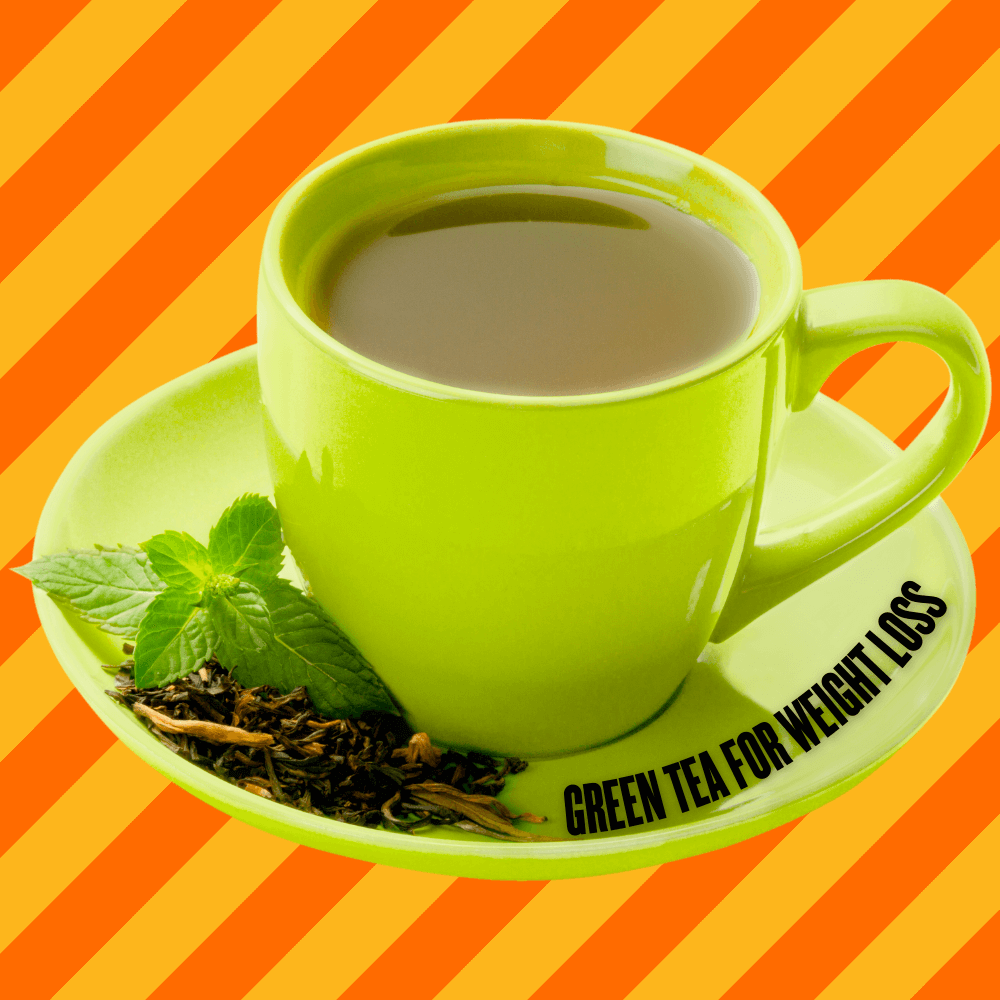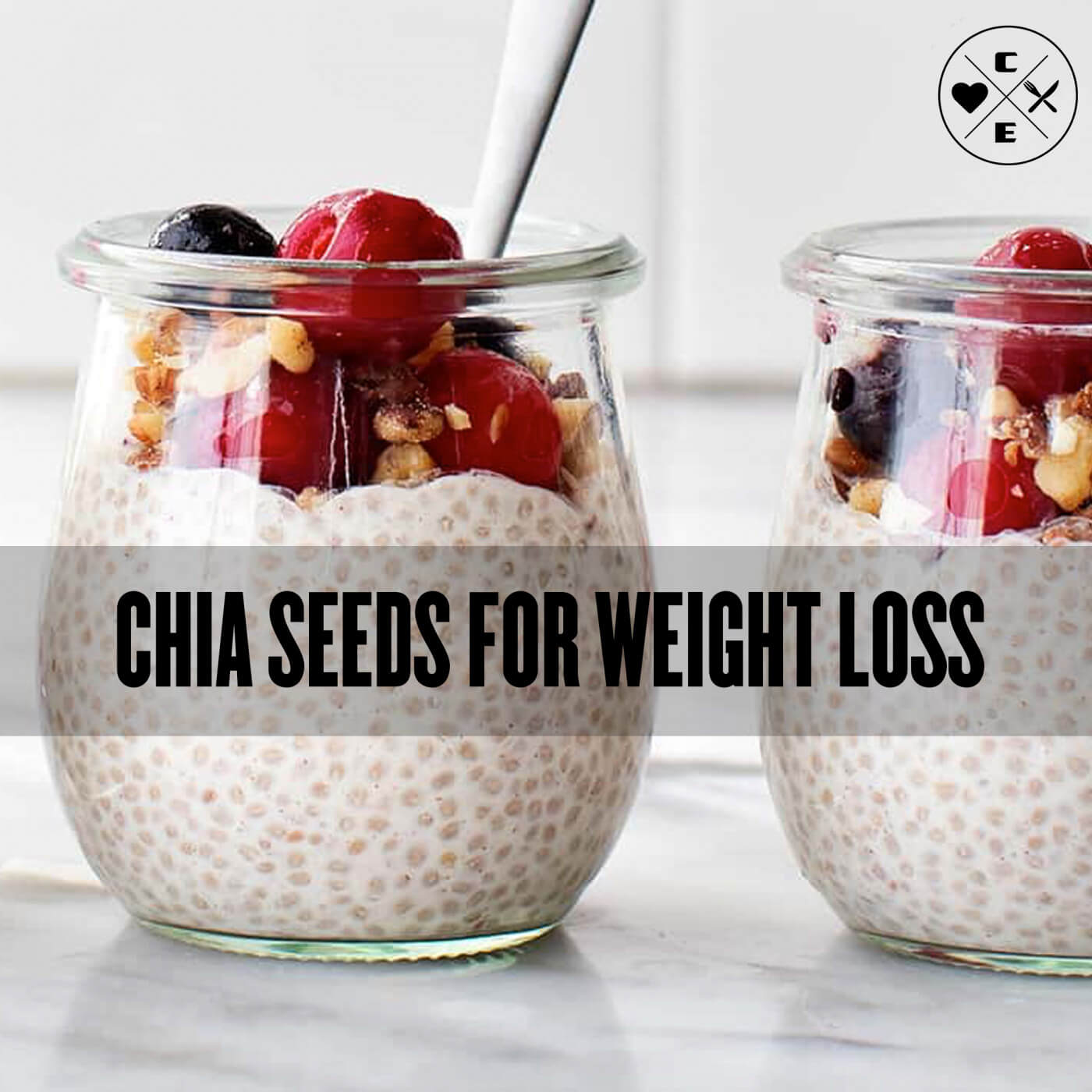
Is Oatmeal Good For Weight Loss?
Dorothy M. Shirnyl, RND
Nutrition
|
Healthy Recipes
|
Weight Loss
|
Healthy Lifestyle
13 minute read
Did you know that oatmeal for weight loss has gained immense popularity? Oatmeal has been gaining attention as a potential weight loss solution. But does oatmeal truly deliver results? When it comes to your weight loss journey, choosing the right foods is key. Many advocates believe that oatmeal is an excellent choice. As a natural and wholesome whole grain with a low glycemic index, oatmeal can keep you full and curb cravings. Discover how incorporating oatmeal into your diet can be a game-changer, helping you stick to a healthy eating plan and achieve your weight loss goals effectively.
In this article, we let’s discuss the following:
- What is oatmeal?
- What are the nutrients can you get from oatmeal?
- What are the health benefits of oatmeal?
- Is oatmeal good for weight loss?
- How can oatmeal help you lose weight?
- How to use oatmeal for weight loss?
- Oatmeal meal ideas for reaching your weight loss goals
What is Oatmeal?
Oatmeal, a popular breakfast staple, is a nutritious grain derived from oats. It has garnered attention for its potential role in weight loss. So, is oatmeal good for weight loss? Absolutely! Oatmeal is rich in fiber, which aids digestion and promotes feelings of fullness. Its low glycemic index helps stabilize blood sugar levels and prevent energy crashes. Additionally, oatmeal provides essential nutrients and minerals. By incorporating oatmeal into your diet, you can enjoy a satisfying and wholesome meal that supports your weight loss goals.
What Are the Nutrients Can You Get From Oatmeals?
Nutritionally, oatmeal for weight loss is a powerhouse. It is high in protein and low in fat, cholesterol, and sodium, making it an excellent choice for your healthy eating plan. Did you know? Oatmeal is a staple of the American diet!
Embracing oatmeal as part of your diet can provide a nourishing and satisfying meal that supports your weight loss journey. These are the nutrients that you can get from eating oatmeal:
Carbohydrates: provide energy to your body without causing spikes in blood sugar levels or insulin secretion
Protein: Essential for muscle growth and repair.
Fiber: It helps lower cholesterol levels, reduce your risk for heart disease, and keep your digestive tract moving along smoothly.
Magnesium: Necessary for strong and healthy bones, nerve function, and energy production.
Phosphorus: It helps build strong bones and teeth.
Manganese: Essential for carbohydrate metabolism, blood sugar regulation, and calcium absorption.
Oatmeal contains carbohydrates that provide sustained energy without causing blood sugar spikes or excessive insulin secretion. It is also a good source of protein, crucial for muscle growth and repair.
Additionally, it is rich in dietary fiber, which aids in lowering cholesterol levels, reducing the risk of heart disease, and maintaining healthy digestion. Oatmeal provides essential minerals such as magnesium, necessary for strong bones, nerve function, and energy production, as well as phosphorus, which contributes to the development of sturdy teeth and bones. Thus, it makes it one of your healthy food options.
What Are the Health Benefits of Oatmeal?
Oatmeal is not only a delicious breakfast option but also a powerful ally in your weight loss journey. Wondering if oatmeal is good for your diet? Absolutely! Eating oatmeal to lose weight has numerous benefits. Firstly, oatmeal is rich in dietary fiber, which aids in digestion, promotes a feeling of fullness, and supports healthy weight management.
Oatmeal has been associated with a reduced risk of heart disease due to its several heart-healthy properties:
Soluble fiber: Oats are rich in soluble fiber, specifically beta-glucan, which has been shown to lower LDL cholesterol (the "bad" cholesterol) levels. By reducing LDL cholesterol, oatmeal helps protect against atherosclerosis and lowers the risk of heart disease.
Antioxidants: Oatmeal contains antioxidant compounds called avenanthramides, which have anti-inflammatory and vasodilatory effects. These compounds help to reduce inflammation in the arteries, promote healthy blood flow, and contribute to overall cardiovascular health.
Blood pressure regulation: Certain minerals like magnesium and potassium in oatmeal contribute to maintaining healthy blood pressure levels.
It supports appetite control, making you feel full longer
Oatmeal's abundance of fiber plays a vital role in inducing satiety and managing cravings, making it an excellent aid for oatmeal for weight loss. The fiber present in oatmeal has the capacity to absorb water in the digestive tract, expanding its volume and creating a sensation of fullness. This mechanism can be highly advantageous in weight management, as it helps curb excessive eating and prevents unnecessary snacking during intervals between meals. By incorporating oatmeal into your diet, you can harness the power of its high fiber content to support your weight loss efforts effectively.
It helps lower cholesterol levels
Consuming oatmeal for weight loss can have a positive impact on cholesterol levels, thanks to its soluble fiber, specifically beta-glucan. The research surrounding this type of fiber demonstrates its remarkable potential in reducing cholesterol. When consumed, the soluble fiber transforms into a gel-like substance within the digestive system, effectively binding to cholesterol and aiding in its elimination from the body. By diminishing LDL cholesterol, oatmeal promotes an improved cholesterol profile, thus reducing the risk of heart disease. Incorporating oatmeal into your diet can serve as a beneficial strategy not only for weight loss but also for maintaining a healthy heart.
Is Oatmeal Good For Weight Loss?
Yes! Eat oatmeal to lose weight an effective way to shed those extra pounds without living on a diet that makes you feel hungry.
Why? Oatmeal is an excellent source of complex carbohydrates that support weight loss because it contains significant amounts of fiber. Dietary fiber is a type of carbohydrate that is beneficial to our digestive system. If you're looking for convenient options to incorporate oatmeal into your weight loss journey, consider exploring weight loss meal delivery services.
Let's dig deeper!
How Can Oatmeal Help You Lose Weight?
Research revealed that eating more whole grains like oatmeal can help you lose weight easier than processed grains. The fiber in oatmeal helps suppress hunger and makes you feel full and satisfied.
If you're trying to lose weight, eating high in fiber is the key. This fact is supported in a 2015 study wherein participants were asked to choose their own breakfasts based on their appetite and energy needs. The study concluded that those who ate oatmeal felt less hungry later in the day than those who did not consume oatmeal. Incorporating high-fiber foods like oatmeal into your diet can be a cost-effective and beneficial approach to weight management. For those seeking convenient and budget-friendly options, exploring affordable meal delivery services may be a practical choice.
Furthermore, fiber can help lower cholesterol levels, which is also a component that you should also look out for, especially when you're following a weight loss diet.
Oatmeal fits nicely for a healthy weight loss diet because it is high in fiber, low in fat and calories, and can be eaten for breakfast or as an easy snack.
It is important to highlight that an effective weight loss meal plan should incorporate a structured exercise routine and a well-rounded diet that encompasses a diverse range of foods from all the major food groups.
How To Use Oatmeal For Weight Loss?
Using oatmeal for weight loss is simple and versatile. Here are some ways to incorporate oatmeal into your weight loss regimen:
Start with the right type of oatmeal
Rolled oats: These are the most common and widely available types of oatmeal. They have a slightly chewy texture and cook relatively quickly.
Steel-cut oats: These are less processed and have a coarser texture. They take longer to cook but offer a nuttier flavor.
Instant oats: These are pre-cooked and then dried for quick preparation. They are the most convenient option but may have added sugars or flavorings. Opt for plain instant oats without additives.
Choose healthy toppings and mix-ins
Fresh fruits: Add sliced berries, chopped apples, diced bananas, or any of your favorite fruits to boost flavor and nutritional value.
Nuts and seeds: Sprinkle almonds, walnuts, flaxseeds, or chia seeds for added protein, healthy fats, and crunch.
Spices: Enhance the taste with spices like cinnamon, nutmeg, or vanilla extract, which add flavor without adding calories.
Low-calorie sweeteners: If you prefer some sweetness, use natural alternatives like stevia or a small amount of honey or maple syrup.
Cook it up
Stovetop method: Boil water or milk (dairy or plant-based) and add the oats. Cook for the recommended time on the packaging, stirring occasionally until the desired consistency is reached.
Microwave method: Combine oats and liquid in a microwave-safe bowl and heat on high for the suggested time. Stir halfway through and continue cooking until the desired texture is achieved.
Overnight oats: Mix equal parts of oats and liquid (e.g., milk or yogurt) with your choice of toppings in a jar or container. Refrigerate overnight; in the morning, you'll have ready-to-eat cold oats.
Observe portion control
Stick to recommended serving sizes, usually around ½ to ⅔ cups of dry oats per person. Adjust the amount based on your individual calorie needs.
Be mindful of portion sizes when adding toppings to avoid excess calories. Measure quantities if necessary.
Enjoy Oatmeal Throughout the Day
Breakfast: A warm bowl of oatmeal topped with fruits, nuts, and a sprinkle of cinnamon is a satisfying way to start your day. It provides long-lasting energy and keeps you full until lunchtime.
Snacks: Prepare oatmeal bars or energy balls using oats, nut butter, and dried fruits. These portable snacks are convenient for curbing hunger between meals.
Baking: Replace some flour in recipes with oat flour (ground oats) for healthier baked goods like cookies, muffins, or pancakes.
Remember, while oatmeal is beneficial for weight loss, it's essential to maintain a balanced diet and incorporate other nutrient-rich foods along with regular exercise. Oatmeal can be a valuable component of your weight loss journey, but it's not a standalone solution.
7 Oatmeal Meal Ideas for Reaching Your Weight Loss Goals
Regarding weight loss, oatmeal can be a fantastic addition to your meal prep. Here are some oatmeal dishes that are not only delicious but also support your weight loss goals:
- Berry Overnight Oats. In a jar, layer rolled oats, your choice of milk (such as almond milk or coconut milk), and a handful of mixed berries (such as strawberries, blueberries, and raspberries). Leave it in the fridge overnight; in the morning, you'll have a creamy and fruity breakfast ready to enjoy.
- Savory Oatmeal with Vegetables. Cook rolled oats with vegetable broth instead of water to give it a delicious twist. Add sautéed vegetables like spinach, mushrooms, and bell peppers. Season with herbs and spices like garlic, thyme, and black pepper for a flavorful and satisfying savory oatmeal dish.
- Apple Cinnamon Oatmeal. Cook rolled oats with water or milk and stir in diced apples and a sprinkle of cinnamon. The natural sweetness from the apples and the comforting flavor of cinnamon make this dish a delightful choice.
- Pumpkin Spice Oatmeal. Stir canned pumpkin puree, pumpkin spice mix, and a touch of maple syrup into your cooked oats. This fall-inspired oatmeal is not only tasty but also packed with fiber and nutrients.
- Protein-Packed Oatmeal. Boost the protein content of your oatmeal by adding a scoop of protein powder or a dollop of Greek yogurt. This will help keep you satiated and support muscle growth and repair.
- Matcha Green Tea Oatmeal. Mix matcha green tea powder into your cooked oats for a rich, antioxidant-rich breakfast. Top with sliced almonds or coconut flakes for added texture.
- Chocolate Banana Oatmeal. Mash a ripe banana into your cooked oats and stir in unsweetened cocoa powder for rich and indulgent oatmeal. The natural sweetness from the banana eliminates the need for additional sweeteners.
Oatmeal is inexpensive and keeps well in the refrigerator or freezer. So, you don't have to cook it every day.
Monitor your portion sizes and be mindful of additional toppings or mix-ins to control calorie intake. These oatmeal dishes balance nutrients, flavors, and textures while supporting your weight loss journey. Enjoy exploring different combinations and finding your favorites!
Final Thoughts
In conclusion, oatmeal is not only a delicious and nutritious breakfast option but also a powerful tool for achieving weight loss success. By embracing oatmeal as part of your weight loss meal plan, you can enjoy a satisfying and wholesome meal that supports your journey towards a healthier you. So, go ahead and add oatmeal to your shopping list, get creative with your toppings, and let oatmeal be your companion in your quest for weight loss.
FAQ
What to put in oatmeal for weight loss?
To enhance the nutritional value and flavor of oatmeal for weight loss, you can add various ingredients. Consider incorporating fresh or frozen fruits like berries, sliced bananas, or diced apples for added fiber and natural sweetness. Additionally, you can sprinkle in a handful of nuts or seeds such as almonds, walnuts, chia seeds, or flaxseeds to boost healthy fats and protein. Cinnamon or vanilla extract can provide additional flavor without adding extra calories.
Which oatmeal is best for weight loss?
When choosing oatmeal for weight loss, opt for plain or steel-cut oats rather than pre-flavored or instant oatmeal packets, which often contain added sugars and artificial ingredients. Plain oats provide a blank canvas to add your desired toppings while controlling the sweetness and overall calorie intake. Steel-cut oats are less processed and have a lower glycemic index, helping to keep you satisfied for longer.
How to sweeten oatmeal for weight loss?
Instead of adding refined sugars or syrups to sweeten oatmeal for weight loss, try natural alternatives with fewer calories. You can drizzle a small amount of honey or maple syrup, or use mashed ripe bananas, applesauce, or a few drops of stevia for sweetness. Adding a sprinkle of cinnamon, nutmeg, or vanilla extract can also enhance the flavor without adding extra calories.
What to eat with oatmeal for weight loss?
To create a balanced meal for weight loss, you can pair oatmeal with additional nutritious ingredients. Consider topping your oatmeal with a spoonful of nut butter for added protein and healthy fats. Greek yogurt or cottage cheese can provide extra creaminess and a protein boost. You can also serve oatmeal alongside a side of scrambled eggs or a boiled egg for a well-rounded breakfast. Adding a side of fresh fruits or a small portion of nuts can further enhance the nutritional value of your meal.
Related Articles
Is It Okay to Have a Cheat Day?
15 minute read
Does Green Tea Help With Weight Loss?
6 minute read
Are Chia Seeds for Weight Loss Effective?
8 minute read



